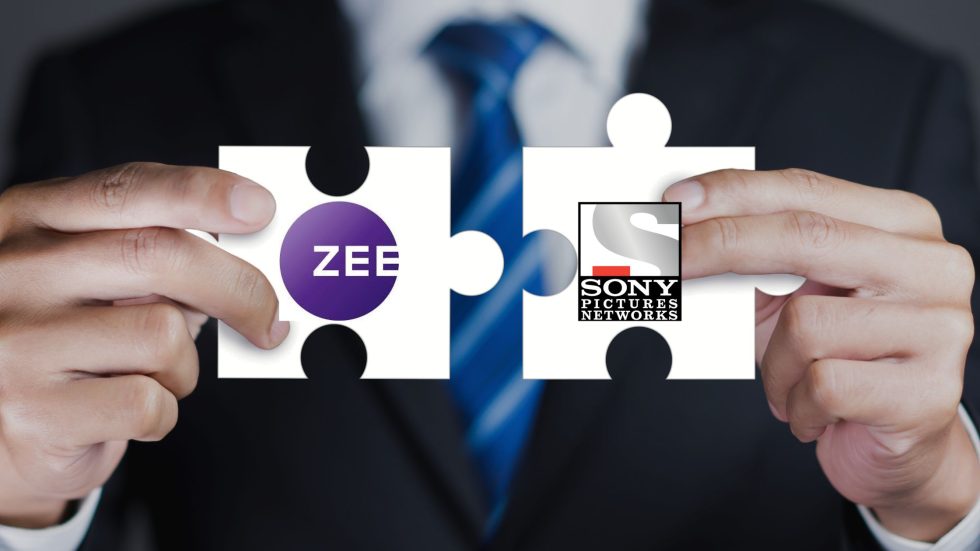Foreword
One of the most significant business transactions to ever occur in the Indian entertainment industry is the Zee-Sony merger. One of the India-based subsidiaries of the Japanese company Sony Pictures Networks, Sony Pictures Networks India Private Limited (“Sony“) (now known as “Culver Max Entertainment Private Limited”), and Zee Entertainment Enterprises Limited (“Zee“), an Indian listed company of Essel Group, will merge in a deal that has been under negotiations since 2021 and finally approved on August 10, 2023 by the Mumbai bench of the National Company Law Tribunal (“NCLT“).
The need to scale up in the fiercely competitive media and entertainment industry, as well as the desire to combine the strengths of the two businesses to build a more inventive and varied entity, are said to be some of the driving forces behind the said merger.
La Raison of the Merger
In response to fierce competition from Disney-Star’s collaboration, Sony had been striving to come to an arrangement with an Indian company to improve its operations in India. Digital streaming and content providers like Netflix, Amazon Prime Video, and Disney+ Hotstar gave a competitive edge to Zee and Sony. The Zee-Sony merger will establish a strong force in India’s media and entertainment industry that will help them compete more successfully against their digital rivals.
With a combination of advertising and subscription video on demand, India boasts one of the largest and most intensely competitive streaming scenes in the world. Both Sony and Zee have reliable multi-platform platforms with various genres that audiences can engage with. The merger is well timed as the Indian television business undergoes a significant transformation brought on by streaming video services and improved broadband connectivity.
The Merger
Shareholding and Board
Sony’s shareholders and promoters will own 50.86% in the merged entity, while Zee’s promoters will own 3.99% and the public will own the remaining 45.15% as the merged entity will be a listed entity. Since Zee will no longer exist as a separate company following the merger, its shareholders will be issued proportionate shares in the merged entity. Furthermore, five (5) executives of Sony will serve on the merged entity’s nine-member board.
Roadblocks prior to the grant of approval
Despite approval from NCLT, the Zee-Sony Merger faced numerous obstacles throughout the process. Though the merger was approved by the Securities and Exchange Board (“SEBI“), certain objections were raised by the country’s anti-trust body, the Competition Commission of India (“CCI“).
The CCI believed that the proposed Zee-Sony merger would result in a significant market share (40-45%) for the parties in Hindi-language TV channels, creating a prohibited horizontal combination under the competition regime. Additionally, the merger could lead to market dominance and monopolistic pricing for advertisement slots, potentially affecting advertisers with higher costs and lower-quality services. Furthermore, the merged entity’s influence as a major broadcaster and a vital distribution platform operator partner could allow it to increase prices for channel bundles, impacting end-consumers. Such actions might breach section 6 of the Competition Act 2002 which states that ‘if a combination causes or is likely to cause an appreciable adverse effect on competition within the relevant market in India, it can be modified/prohibited by the Commission’. Consequently, the CCI believed the merger could cause appreciable adverse effect on the competition.
Addressing these objections of CCI, the parties proposed a voluntary remedy proposal, wherein Zee proposed to divest three of its TV channels namely, Big Magic (in the Hindi general entertainment channel market) and Zee Action and Zee Classic (in the Hindi Films channels market). This proposal was accepted by the CCI with the condition that Star India Private Limited and Viacom18 Media Private Limited (including its affiliates) cannot compete for divestiture of the channels since they are the next credible players with substantial dominance in the market. This step aimed towards preserving competition in the market. Consequently, the objections raised by CCI were resolved, and non-objection was granted to the scheme in March 2022.
Besides that, the said merger was fiercely opposed by Invesco, one of the shareholders of Zee holding 5.11% of shares. Nevertheless, over time, Invesco totally sold its shares in Zee, and as a result, such concerns were resolved.
Furthermore, several creditors, including Axis Finance Limited, JC Flower Asset Reconstruction Private Limited, IDBI Trusteeship Services Limited, Imax Corporation, and IDBI Bank Limited (“Creditors”), who were associated with the Essel Group have expressed their opposition to the non-compete fee of around INR 1101 crores (Indian Rupees One Thousand One Hundred and One Crores) payable by SPE Mauritius Investment Limited (a Sony group entity) to Essel Mauritius SPV.
Since such a sizable sum could have been used to pay off Zee’s debts, the Creditors appeared dissatisfied with the non-compete agreement and believed it to be fraudulent. To the Creditors’ astonishment, the NCLT dismissed their argument on the grounds that the Creditors had claims against the other Essel Group firms, of which Zee is merely one, and that none of them were Zee’s direct creditors, depriving them of contractual privity.
Also, the proposal that Mr. Punit Goenka, Zee’s CEO, and MD would be designated to run the merged entity, was challenged due to a disqualification order against him issued by the Securities Appellation Tribunal (“SAT“) in June 2023. The SAT affirmed the imposition of one-year limitations on Subhash Chandra and Punit Goenka from serving on the boards of publicly traded firms due to suspected misallocation and round-tripping of funds. Concerns were expressed by Creditors for the termination of the Zee-Sony merger based on SAT’s Order, citing regulatory constraints on Punit Goenka’s ability to occupy the position of CEO and MD of the merged entity. However, NCLT dismissed such accusations that were impeding the approval of the Zee-Sony merger, claiming that this was a management issue that could be dealt with at the board level after the scheme was approved.
Synergies of Merger
The Zee-Sony merger will combine the best aspects of the two businesses and will have a sizable content library, a broad channel selection, and a sizeable market share in India’s media and entertainment industry. The Sony-Zee alliance includes over 75 channels that offer news, entertainment, sports, and movies in over 10 different languages.
The Sony-Zee collaboration is favorable because of its complementing qualities. Sony dominates the Hindi non-fiction entertainment market, whereas Zee excels in films and regional channels, commanding a 17% network share to Sony’s 10-12%. This creates a strong strategic synergy spanning broadcast, digital, and content channels. Sony specializes in sports and mainstream entertainment, whilst Zee excels in regional genres. This collaboration enables Zee to effectively monetize Sony’s international content inventory.
Conclusion
The media and entertainment industry is currently experiencing changes due to a decline in revenue and the realization that their current mode of operation is susceptible to external factors. The recent merger between Zee and Sony highlights the industry’s future, which involves integration. This integration can greatly benefit companies by improving their sustainability and relevance to partners and customers, leading to a surge in mergers and acquisitions in the future. Companies in this sector prioritize elements that boost their profit margins and cash flow, making it essential for them to adapt to changing market realities. The success of this merger will depend on improving corporate governance and operational effectiveness, which is crucial to its overall success.
Sanskruti Sable
Associate, Solomon & Co.
About Solomon & Co.
Solomon & Co., (Advocates & Solicitors) was founded in 1909 and is amongst India’s oldest law firms. The Firm is a full-service firm that provides legal services to Indian and international companies and high net worth individuals on all aspects of Indian law.
“Disclaimer”
The information contained in this article is intended solely to provide general guidance on matters of interest for the personal use of the reader, who accepts full responsibility for its use. The application and impact of laws can vary widely based on the specific facts involved. As such, it should not be used as a substitute for consultation with a competent adviser. Before making any decision or taking any action, the reader should always consult a professional adviser relating to the relevant article posting.
Copyright © 2023 Solomon & Co., All rights reserved.





